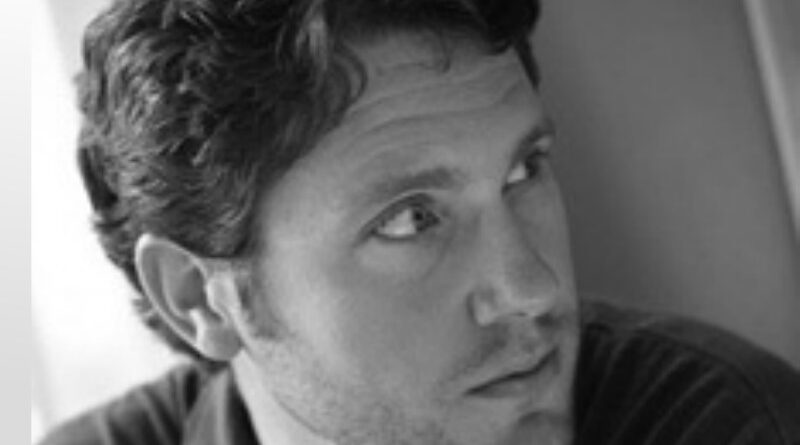Jayson Iwen is the author of Six Trips in Two Directions, A Momentary Jokebook, Gnarly Wounds, and Roze & Blud, which won the 2020 Miller Williams Poetry Prize. He is a professor of writing and English literature at The University of Wisconsin–Superior. (Source: Seagull Books)
Please share what inspired you to write Roze & Blud.
I was inspired by the growing political divide in the United States, which is exemplified by the cultural rift between the two cities where I live and work: Duluth, Minnesota, and Superior, Wisconsin. I wanted to illustrate how two individuals who represent those cities and would probably have different political allegiances could yet share many of the same fundamental attitudes toward life. In a sense, the book could have been called “Red & Blue,” but I like “Roze & Blud” more.
How crucial is the mother tongue in creating meaningful literary expressions? How can translations help?
Our sense of belonging in the world is derived primarily from our mother tongue, but it can also lock us into a very specific way of thinking about and experiencing the world. Translation allows us to rise up out of our habitual perceptions and recognize other aspects of existence that we would not otherwise see.
The dominance of the English language is leading to cultural hegemony, which is having a detrimental impact on linguistic diversity and expression worldwide. Do you think this is an issue that needs to be addressed?
Every language offers a different worldview, and we need as many different worldviews as possible for us to draw upon if we are going to remain adaptable and survive as a species. Monoculture almost always leads to death in ecosystems, both natural and cultural, so diversity should always be preserved and cultivated.
In the current era of hyper-abundant content and AI-aided creativity that prioritizes metrics over meaningful dialogue, literary compassion and ingenuity, how can we foster a culture of creative expression and harmony for its own sake?
I believe there will always be a human demand for creative expression and literary compassion from other humans. One of the most important aspects of art, which is often unacknowledged, is that it is a form of sharing from one person to another. It is a connection between people, one saying, “this is how I see the world, this is how I feel,” and the other saying, “yes, I see it too now, we are not alone.” When I remind myself of this, I feel a weight of anxiety lifted from me, I stop worrying about all the noise and go back to work on my art.
I would love to learn about your creative process and how you approach writing. Could you share some insights with aspiring writers?
I have come to realize that I apply my creative process to all forms of thinking, which includes the form of thinking we call writing. Essentially what happens is that I recognize a connection between previously unassociated entities, concepts, processes, policies, objects, etc. I then explore the potential relations between those things, much like poets do with metaphor. It’s important to give yourself permission to make strange, unexpected associations and examine them, despite social conventions. When you are doing that, you are in “the zone” that leads to creation. Here’s an example of that process: recently I realized that the accumulation of garbage on Earth resembles the proliferation of “information” online, which likewise resembles much of the idle chatter of daily life from which poets have always attempted to raise the level of the language. This series of associations led to my recent work “The Poet as Junkyard Mechanic” (which I shared on Facebook, in case anyone’s interested in reading it).
The journal ‘New Theory’ for which you are the editor-in-chief presents a variety of opinions on a diverse range of topics by various authors, how enriching is it for you?
Due to workload issues, I’ve had to suspend editorial work on New Theory, but it was very gratifying to help others find an outlet for unconventional ideas and expressions, and I continue to maintain the website so the work I curated over those years remains available for others to read.
In your opinion, how can a poet, writer or creative harness his or her talent to not just create narratives about the fabric of society but also play an instrumental role in creating connections and relationships on the common thread of empathy?
Creative artists have many skills they often take for granted that they can apply to all sorts of endeavors to help enact change. For example, I recently finished writing a book that explains to general audiences how they can use poetry techniques to mitigate unconscious bias and enhance open-mindedness and creativity.
Do you think there is a paradigmatic shift from methodological nationalism to methodological transnationalism when it comes to translation?
Unfortunately, we seem to be currently experiencing a moment of nationalistic re-entrenchment across the globe, making the transnational, cross-cultural brotherhood and sisterhood of art and literature more important than ever to cultivate, and, of course, one of the best ways to do this is through translation.
What are your hopes for Ananke’s WLF, do you think events like these can help create a more intersectional and empathetic world?
Communities like Ananke’s WLF are doing just what I claimed was so important in my last answer: cultivating a transnational, cross-cultural sisterhood of art and literature. This is so commendable—thank you!
Madiha Mughees has been enthusiastic about writing since she was merely a 1st grader. She believes that words have this magical tendency to transform the world. She wishes to impact hearts and minds through her writings and also wishes to work with the underprivileged to help them self-actualize and rise. She is a mother of two and along with contemplating and writing she enjoys cooking as this too is a process of creation. She also enjoys traveling and observing different people from different cultures.











